* This article was published in the Global Fund Observer (English – French), Aidspan‘s newsletter.
In a shaded courtyard of a non-descript building just on the outskirts of Nouakchott, a group of young men sits in comfortable repose. It’s a group with no official name, only the whispered identity of an MSM: a man who has sex with men. One by one they get up to sit on an overturned bucket and tell intimate details of their lives.
They are providing anonymized responses to two employees of the NGO SOS Pairs Educateurs as part of Mauritania’s first Integrated HIV Bio-Behavioral Surveillance (IBBS) survey since 2007.The data collected by the IBBS survey will help the national AIDS commission, SENLS, to develop its concept note for some $32 million allocated by the Global Fund to Mauritania under the new funding model (NFM). A first data collection in seven years will clarify the state of the disease and its response in the Islamic republic, both within the general population and those groups most exposed to the risks of infection: groups like commercial sex workers, prisoners, members of the security forces and truck drivers who travel the length of the West African corridor or across the northwestern deserts of the Sahel. Other high risk groups include economic migrants, sailors and the fishing industry.
But it’s the men who have sex with men who are the hardest to reach, even for the survey, in this very conservative society. « It’s impossible to say the word homosexual in public, » explains Fatimata Ball, who represents people living with HIV on the Mauritanian country coordinating mechanism (CCM). Ball is one of just two people in Mauritania who appear bare-faced when they talk about their HIV-positive status. With her head held high she daily battles discrimination on behalf of her fellow citizens living with the disease, and the taboos that complicate everything — especially anything to do with homosexuality. »They’re [considered] horrible people who we shouldn’t engage with — not even to shake their hands because for 40 days afterwards, your prayers will be worth nothing, » she says, shaking her head ruefully.
A ‘foreigner problem’
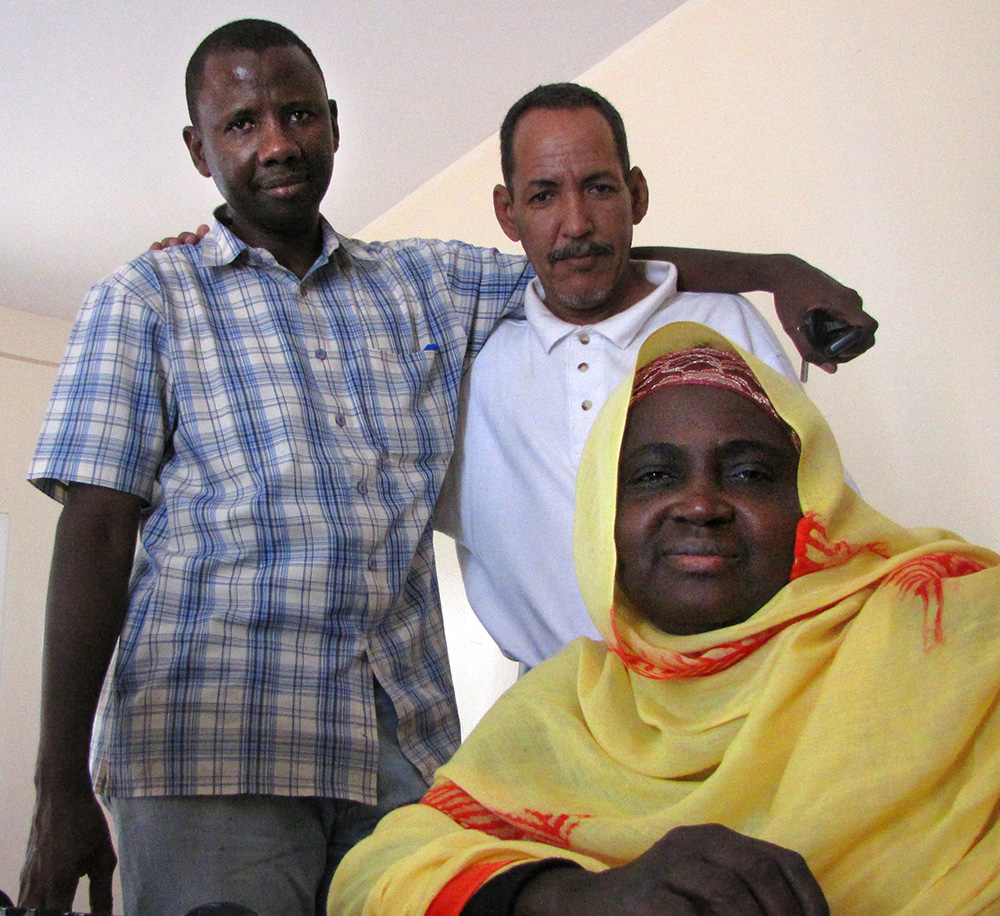 Officially, Mauritania is one of 11 countries worldwide where being gay is punishable by death. In reality, this penalty has not been applied against anyone since 1987. Conventional wisdom is that the country is not nearly as harsh in its perception of homosexuality as countries like Iran, or even southern neighbor Senegal. And Fatimata BJibril Sy
Officially, Mauritania is one of 11 countries worldwide where being gay is punishable by death. In reality, this penalty has not been applied against anyone since 1987. Conventional wisdom is that the country is not nearly as harsh in its perception of homosexuality as countries like Iran, or even southern neighbor Senegal. And Fatimata BJibril Sy
all is quick to say that religion — Mauritania practices a strict interpretation of Sunni Islam — doesn’t bear all the responsibility. « We’ve got the big religious leaders who are saying that, even if Islam condemns these practices, these are human beings who have the right to treatment, » she says. « But what they’re not doing is saying it publicly: not on the radio, or in the newspapers, or even during their sermons. They’re not saying it so people can hear, and so people aren’t frightened. »
The silence is an advantage to the people working on the frontlines as well. « We don’t want to make noise around our work; our society doesn’t like too much buzz, » says Jibril Sy, president of SOS Pairs Educateurs, which has been working quietly in the gay community since 2001. « When we started our work, we knew that it would be a bad strategy to attack the law, » he says. « So we have really taken the angle of right to health, which works here. No matter who you are, even if you’re a stranger, Mauritanians believe you have a right to health. »
Most don’t, however, believe that HIV is a ‘Mauritanian thing’ but rather an uninvited import from neighboring countries, carried by people who fled Senegal or the Gambia to become refugees here. They think that those foreign elements are also responsible for the introduction of homosexuality into Mauritanian culture, reflecting their disharmony with the way things really are. According to Amadou Seye Ndiaye, himself of Senegalese origin, « if you behave normally, you should have no problems. But these new guys, they are bringing us trouble. They dress up in women’s clothings, they wear makeup, and they get married — like in Senegal. »
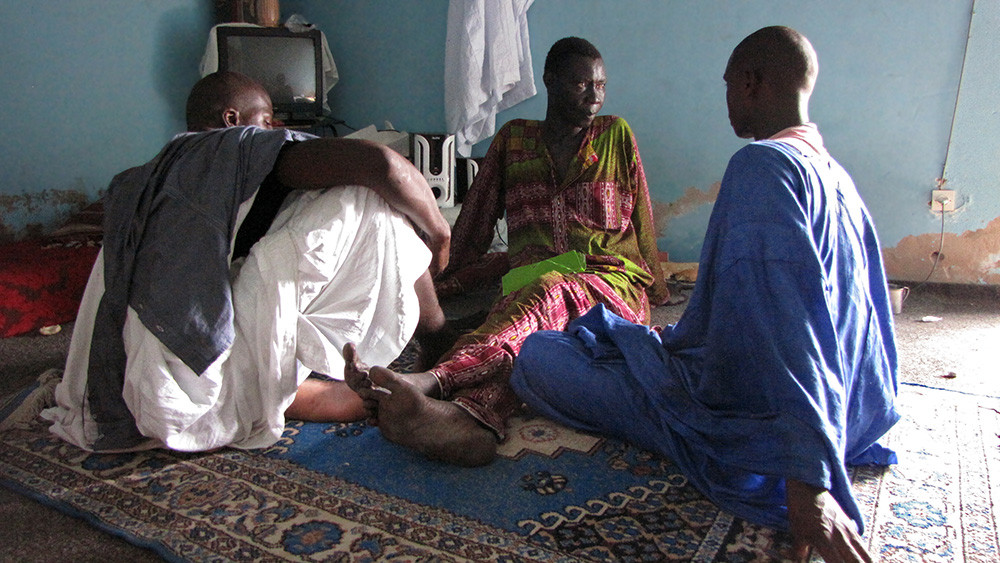 Ndiaye is a self-styled representative of the Nouakchott gay community, in which he says he knows about 400 people — incuding about 100 Mauritanians. Among them are many who use his home as sort of a drop-in center. It is here that SOS Pairs Educateurs are carrying out their survey, and it is here that Yacoub and Ahmed (not their real names) explain how the gay community in Nouakchott is changing.
Ndiaye is a self-styled representative of the Nouakchott gay community, in which he says he knows about 400 people — incuding about 100 Mauritanians. Among them are many who use his home as sort of a drop-in center. It is here that SOS Pairs Educateurs are carrying out their survey, and it is here that Yacoub and Ahmed (not their real names) explain how the gay community in Nouakchott is changing.
« There are a lot of men in Mauritania who have sex with other men, but we are very, very discreet. We can be the masters of ceremony at weddings and celebrations of birth but beyond that, we try not to attract attention, » says Ahmed. « But the Senegalese, they are very provocative, very daring. And it shows, and it shocks, and it causes a lot of people to revolt against them. »
Leaving the shadows behind, and being heard
« More and more we see gay men coming and asking for services from civil society, » says Aliou Diop of SOS Pairs Educateurs. What this means, according to Diop, is that if the state is allowing groups like his to respond, it’s that the state understands that the national response must accommodate all of the different needs. And the needs are growing, according to the preliminary results of the survey, which have yet to be made public, the HIV infection rate in the gay community is on the rise, likely to substantially exceed the 5% infection rate recorded in 2007.
Nothing proves the importance of reacting to an epidemic before it spreads beyond a concentrated population to the general population than a rise in infections, but Jibril Sy says there are very few, if any, activities being carried out across the country. This is due to the challenges that followed a damning Office of the Investigator General report from 2009. Suspension of the grant meant a loss of direction (learn more) and ultimately resulted in very little effort to target prevention activities to one of the communities that needed them most.
The new funding model (NFM) is providing Mauritania with a previously unanticipated opportunity: to wipe the slate clean and demonstrate its new capacity for risk management while also changing its strategy, and its approach, to HIV. This means a bigger ask — some $11 million — for innovative new programs that put key populations at the heart of the response. But even this is not without challenges because even condom distribution has to be done covertly (PDF – 600 Kb – p. 16) through people who volunteer to keep the products hidden in their homes.
Saving face or saving lives
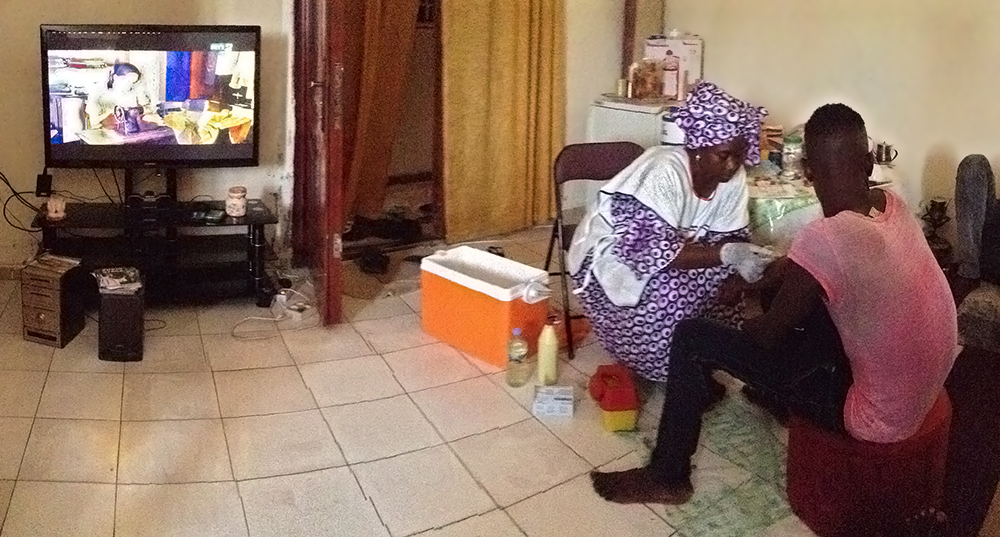 How to encourage men who rely on the shadows to step into the light, to risk harassment, arrest and discrimination remains the unanswered question. Senegalese expat Madieng says it’s about coming together as a community. « If we’re in a bloc, we will have a strong coalition, with a strong leader who knows the problems and can speak on our behalf, » he says. « It is up to us to help ourselves; we can’t wait until society accepts us — we just want to be left in peace and treated like human beings. »
How to encourage men who rely on the shadows to step into the light, to risk harassment, arrest and discrimination remains the unanswered question. Senegalese expat Madieng says it’s about coming together as a community. « If we’re in a bloc, we will have a strong coalition, with a strong leader who knows the problems and can speak on our behalf, » he says. « It is up to us to help ourselves; we can’t wait until society accepts us — we just want to be left in peace and treated like human beings. »
But another sign of the disconnect between the new arrivals and the indigenous community is revealed with Yacoub and Ahmed’s almost immediate rejection of the idea. « We don’t think that coming together will serve any purpose, because we are fine just helping each other. We don’t have any specific problems that require us coming together, forming an association, being represented by some guy, » they say.
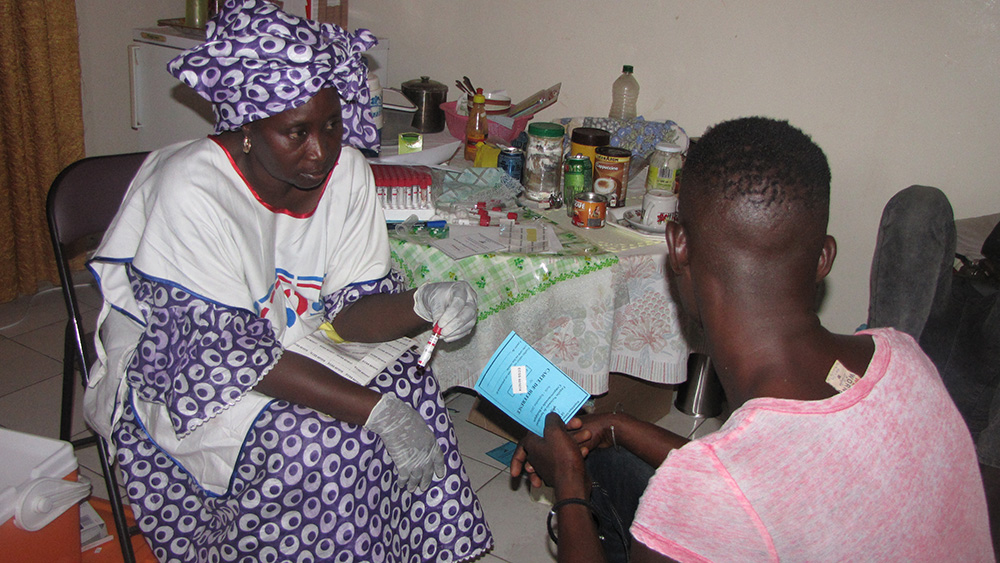 For now, some short-term plans are in place, if only to establish what activities should be prioritized under the concept note using focus groups comprised of those who responded to the IBBS survey. This has been approved not only by the CCM but by the Fund’s own country team, which has emphasized the need for these proposals to come from the local context. If in Mauritania that means individuals, not formal or even public groups, that will work, as long as it is a participatory approach, the Global Fund Secretariat emphasized.
For now, some short-term plans are in place, if only to establish what activities should be prioritized under the concept note using focus groups comprised of those who responded to the IBBS survey. This has been approved not only by the CCM but by the Fund’s own country team, which has emphasized the need for these proposals to come from the local context. If in Mauritania that means individuals, not formal or even public groups, that will work, as long as it is a participatory approach, the Global Fund Secretariat emphasized.
While being back in the good graces of the Global Fund will be critical to Mauritania’s HIV response, it is far from a magic bullet that will see an opening of Mauritanian society to homosexuality. « With or without funding, there is never going to be a legal recognition of the rights of men who have sex with men or sex workers, » says Fatimata Ball. « That’s non-negotiable in an Islamic country and no amount of money is going to change how Mauritanians feel about this. »
*Read this article in French. Lisez cet article en français.

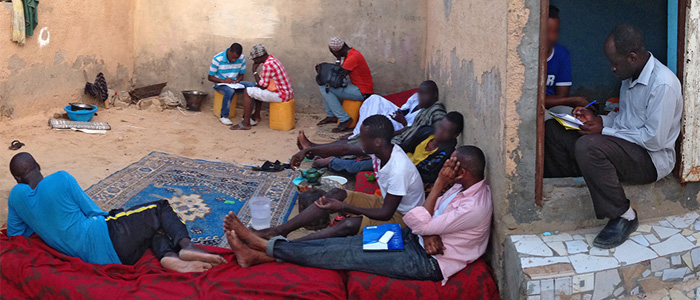
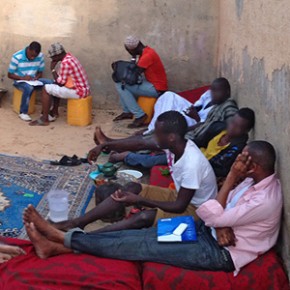

Trackbacks (rétroliens) & Pingbacks
[…] cet article en anglais. Read this article in […]
Laisser un commentaire
Rejoindre la discussion?N'hésitez pas à contribuer !